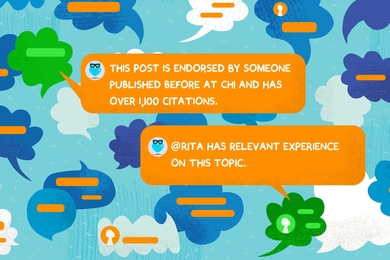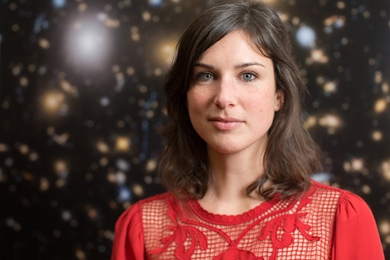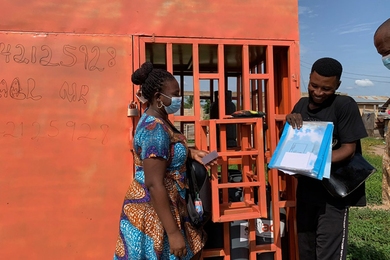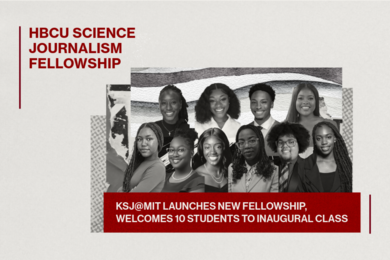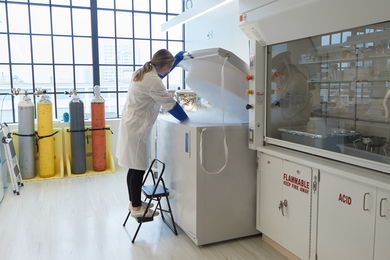MIT's School of Engineering opened the doors of its new Saturday Engineering Enrichment and Discovery Academy at an orientation on the evening of March 7.
Minority students from three Boston and Cambridge high schools heard from program director Karl Reid, executive director of special programs at MIT; Dean of Engineering Thomas Magnanti and others about the potential of the program to prepare them for rigorous college study in math and science and to teach them leadership, teamwork and communications skills.
"We are standing at the threshold of something great, powerful, illuminating, frustrating and disconcerting," said Reid in his opening comments. "The SEED program will offer high school students a taste of what it is like to be an MIT student and to drink from the MIT firehose."
The Saturday Engineering Enrichment and Discovery (SEED) Academy was founded to help underrepresented minority students pursue technical careers by strengthening their fundamental math, science and communication skills through hands-on applications of engineering disciplines. "Underrepresented minorities" refers to those groups whose participation in the technical fields does not reflect their percentage in the general population, namely African-Americans, Hispanic Americans and Native Americans.
Nationwide, only 6.8 percent of practicing engineers are African-American, Hispanic American or Native American, according to the National Science Foundation. One way to change these statistics, Reid said, is to give minority students a solid grounding in mathematics, particularly algebra and geometry. Minority students who excel in these subjects are more likely to get into college, to find the funding to support their studies, and to complete their education.
The SEED program hopes to prepare participants for college mathematics and science by offering them a challenging learning environment with high expectations and access to positive role models. Each eight-week semester will feature an engineering discipline such as mechanical engineering, robotics or chemical engineering, from which all math and science instruction will flow.
SEED's curriculum will emphasize multidisciplinary content and hands-on learning. Courses will be taught by MIT graduate students who have demonstrated exceptional teaching ability and command of the fundamentals of their field of study. Teaching assistants will be undergraduate students majoring in engineering or science who have a strong interest in teaching and tutoring.
The SEED Academy is an outgrowth of the MIT Minority Introduction to Engineering, Entrepreneurship and Science program (MITE2S), a summer program for talented minority students across the United States. Now in its 26th year, MITE2S has an impressive track record: 94 percent of its alumni who apply to MIT are accepted, and 92 percent major in engineering, math or science.
"SEED is our attempt to do on a local level what MITE2S has done on a national level," said Magnanti. "We are bringing the best and the brightest minority students from around the Boston area to MIT and helping them to discover their true potential."
Students taking part in the inaugural class of the SEED Academy come from the John D. O'Bryant School of Mathematics and Science, the Media and Technology Charter High (MATCH), and Cambridge Rindge and Latin School.
The current class of ninth-grade students will stay with the program through their senior year. Plans call for the addition of a new class each year, bringing the total enrollment to 80 by 2005.
The SEED Academy is funded by Verizon, the Balfour Foundation, and the Chung '89/Donath '86 Family Fund.
A version of this article appeared in MIT Tech Talk on March 13, 2002.

